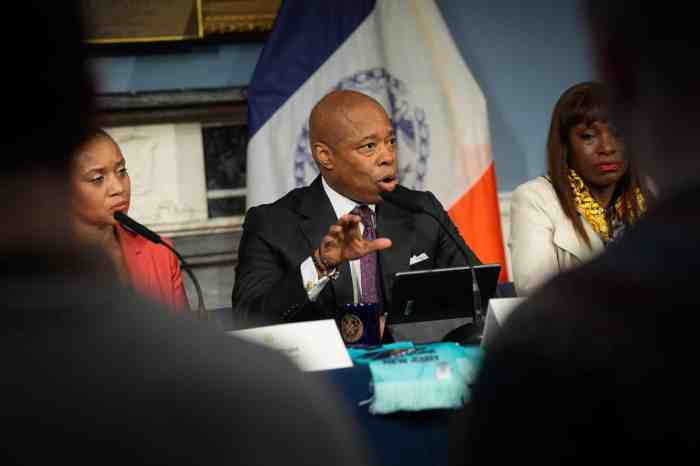BY CLAYTON PATTERSON | I know many people believe New York City is a nicer, safer place now that international corporate capitalism has homogenized, standardized and washed away so much of what made the city edgy. They applaud things like the fact that street drugs and crime on the Lower East Side have largely been eliminated from public view.
I am not one of those people who is applauding, however. Not that I want to see the drugs and crime come back. But the downside is that the accompanying gentrification has made the city very expensive. Gone are the affordable rents that allowed people the chance to live an inexpensive but culturally rich lifestyle.
Yes, the Lower East Side had a dangerous edge. But people got acclimatized and learned to safely navigate the perils of the street. And once they adjusted, they could get down to the business of creating art and developing their talent, or just living their life. And this space for budding creators and entrepreneurs made New York City the home to cutting-edge culture.
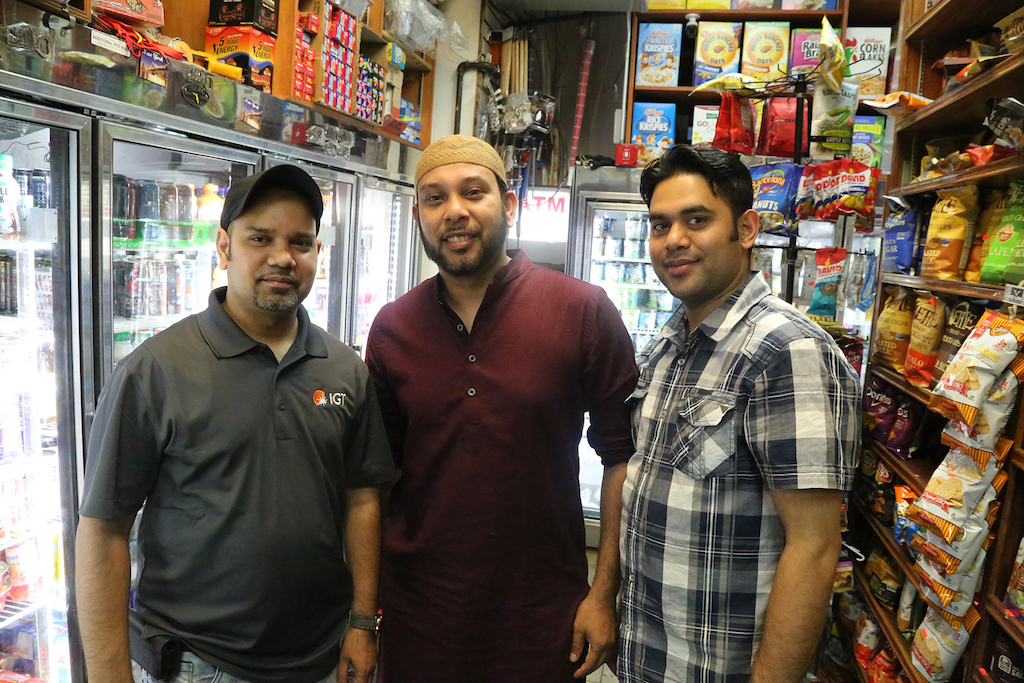
Much of what made the city great came from those who were struggling up from the bottom. New York was home for those living on a modest income. Well, that’s over. Gone are the days of pulling oneself up by the bootstraps. It is now more about being born connected or finding a silver spoon in one’s mouth.
Big money drives out the innovators and trend-starters that made the L.E.S. a magical, creative crucible. Gone is much of the ethnic and small business diversity that was found on our streets. A lot of those smaller ethnic establishments have fallen by the wayside, as the bottom line becomes the only yardstick landlords care to use to evaluate their commercial tenants. That mentality has turned the L.E.S. into an entertainment zone filled with bars because those are the businesses that will pay the highest rent. This money-before-everything-cutthroat environment makes it very difficult to start and survive as an independent, self-sufficient small business.
I bring this up now because a young Bangladeshi man, trying to run a small falafel business, recently approached me. This is a guy I’ve known since he was in elementary school. We go way back. I also know many of his Bangladeshi friends and relatives.
To digress a bit, one of the greatest blessings I have received living on the L.E.S. is having been able to document such a wide swath of different people and cultures. Many photographers document the rich and famous. Me, I love the people, the history and the diversity of the L.E.S., and usually the famous among us are only well known to their neighbors. When I take a photo of an L.E.S. individual, there is a connection formed and part of your humanity is touched.
I had taken Masud Mohammed’s picture over the years ever since he was a young man, documenting him as he grew up. He and his friend Nizem were always good guys. Nizem and his father, before he was gentrified out, ran the small grocery north of my home. Good neighbors, good people, but their line of work could be dangerous. An employee got slashed and a few other situations happened and they could not always rely on the cops. We relied on each other.
The most egregious fine I witnessed was when an A.T.F. agent charged them with selling black-market cigarettes without the tax stamp on them. Having hung around the business enough, I never saw any evidence of them selling untaxed discount cigarettes. It was a survival business, run on hard work and long hours. I never saw any shifty sliding. They were transparent in their honesty.
They went to court. I went as a witness, but it was somewhat awkward because they couldn’t afford a lawyer, and the father was deathly sick at the time. He lost. I felt they had been targeted because of his traditional Muslim faith.
Nizem and his father were hardworking, honest, and ran a totally legitimate business. They were good neighbors Elsa and I could depend on. I believe that Masud and Kammal Mohammed and Karin Nur are the same kind of good neighbors.
In early April, Masud, Kammal Mohammed and Karin Nur took over the license of the Falafel Guys shop, at 127 Rivington St. In comes the Department of Health and gives them a heavy fine because the employee toilet — although in the employees’ working part of the business — is down a flight of stairs. To reach it, you have to walk out of the kitchen, turn right, walk down a flight of steps, all in an enclosed space between two buildings — although it is open to the sky all the way at the top of the buildings — and go through the door to enter the falafel shop’s basement toilet. I am not sure it was inconvenient. It was private, but D.O.H. felt an employee could be intimidated walking down a flight of steps.
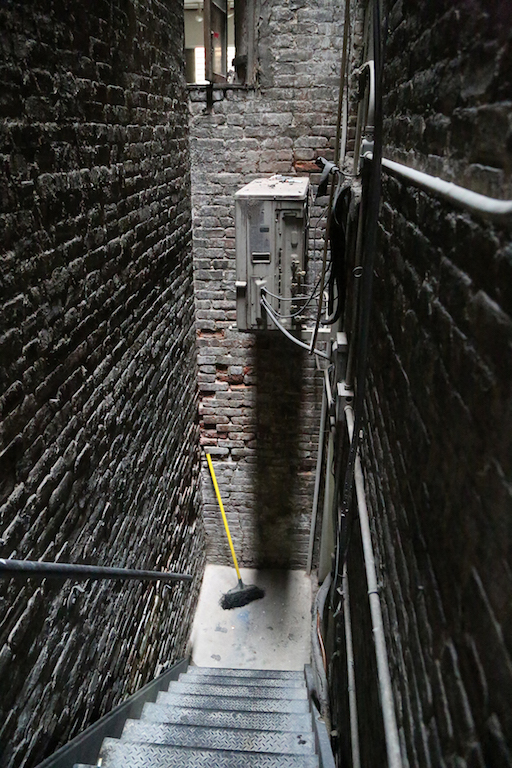
To correct the problem, they must now put a toilet in the public part of the shop’s very small public space. Plumbing pipes must be moved, and then a very small, closet-sized toilet room must be built. There would barely be room to sit down. The space would only allow the tiniest of sinks. And to use the john, the employee would have to walk past the waiting customers and then shut the door. Privacy? Forget it.
And it might be psychological, but it seems it would be distasteful for the worker to walk out of the bathroom, past the customers and back to making them a sandwich. Hmmm.
Moreover, this part of the L.E.S. has become known as Hell Square because of the residual effects of an entertainment zone built on money made from getting young people drunk. A constant problem would be drunks wanting to use the bathroom. They will want to use the toilet since it will be in their full view. No matter that it is not for customers, it will be the focus of many arguments. It is a plan built for a disaster.
To put this new toilet in, Masud, Karin and Kammel have to pony up $10,000: two stacks of dollar bills for plans and another eight stacks for the construction. Then add in the time they have to close for the construction.
Everything about this fine and infraction makes no sense other than making it as difficult as possible to run a successful small L.E.S. business. What is the point? Where is fairness? Where is justice? Is this right? Is it racist? What is the point?
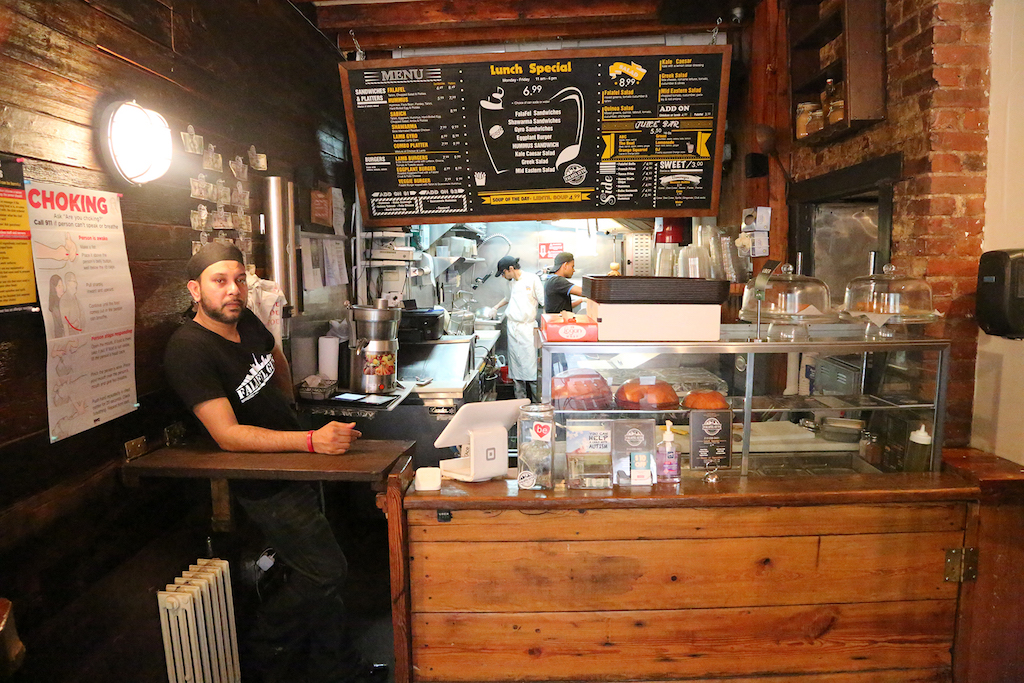
Good neighbors, small businesses that provided a needed service in the community, are what makes a community a community. The L.E.S. was the place where so many important American radical and progressive social changes were born and took hold — unions, tenants’ rights, workers’ rights. Most of our politicians were brought up on left politics, and the community got them into office and supported their careers. So what changed our elected leaders? Some, well…we know what happened to them.
William Rapfogel went to jail for stealing money from the Metropolitan Council on Jewish Poverty. Sheldon Silver dishonored his position and the people’s confidence in him by getting found guilty of honest services fraud, money laundering and extortion. Silver pushed for the formation of the Lower East Side Business Improvement District, and the BID was used to steamroll the community and bring in the bars.
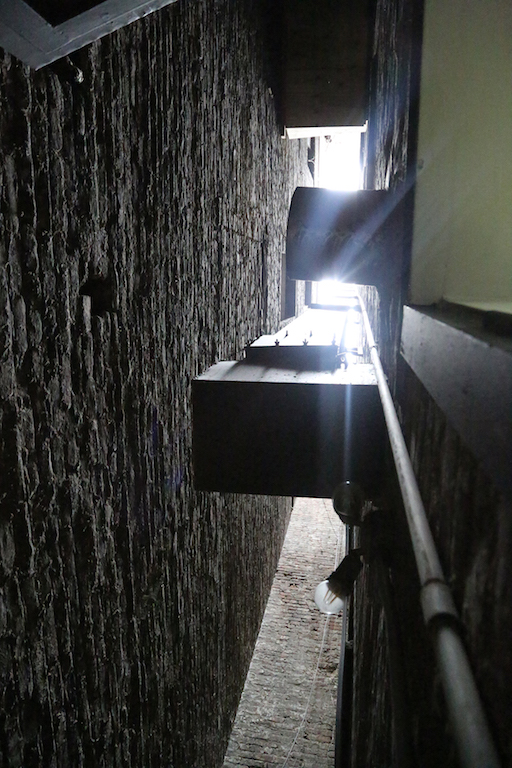
Where were other politicians and leaders? Where was the community board? Why did they sell us out? Everyone knows that the bars are not good for the community’s quality of life. It was so obvious right from the beginning that this liquor-license madness was going to lead to Hell Square.
Take all the different clubs that have been at the north end of my block, at Essex and E. Houston St. — across the street from a school — with full liquor licenses. Then came the shootings, stabbings, a strip club, bottle club and illegal activities. One night Lincoln Anderson, The Villager’s editor, and I witnessed a man come out of the club angry and full-on punch people in the face then flag down a cab and rush off into the night. And so much more.
LES Dwellers covers in detail so much of what is wrong with having a community oversaturated with liquor licenses. So why make it so difficult and expensive for a small, community-based business to open up?












